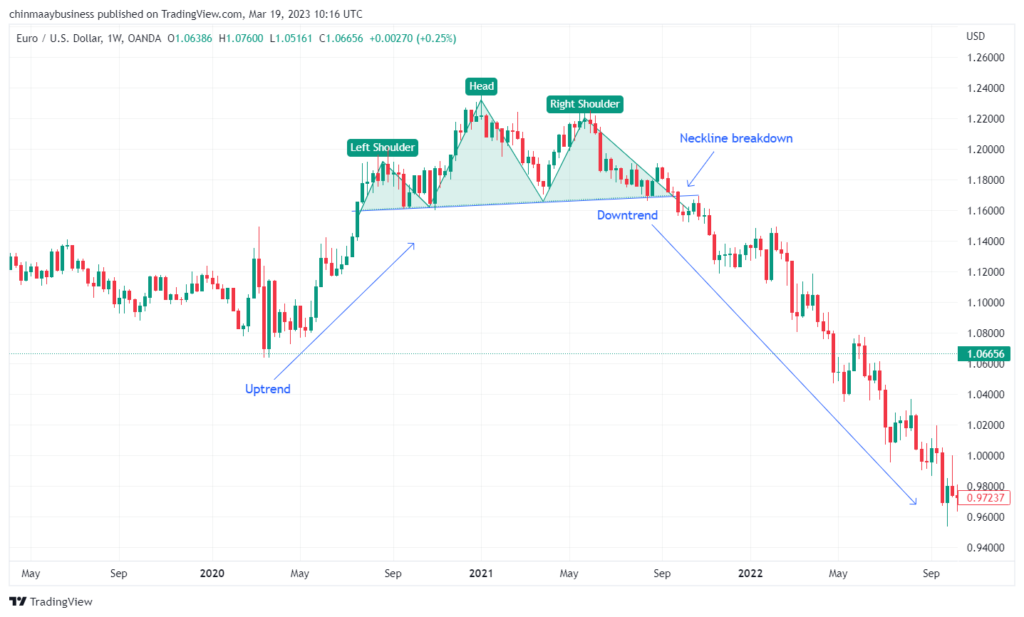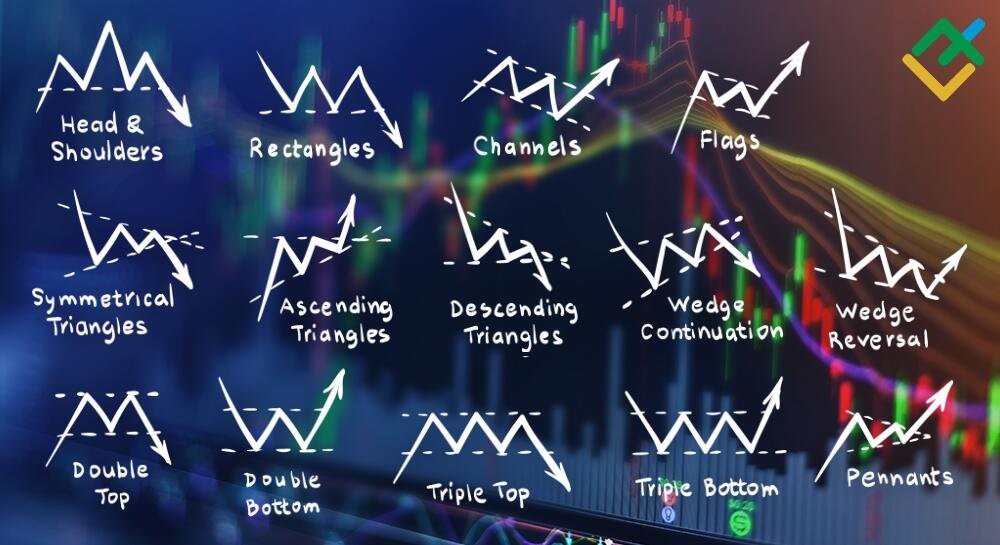
Success in trading depends on various factors including the type of trading, market conditions, individual skills, and strategies. Here are some common types of trading and factors that contribute to their success.Which type of trading will be successful in 2024?
Which type of trading is successful in 2024?
Day Trading:
- Success Factors: Quick decision-making, technical analysis skills, market knowledge, and risk management.
- Pros: Potential for quick profits.Which type of trading is successful in 2024?
- Cons: High risk, requires significant time and attention.
Swing Trading:
- Success Factors: Ability to analyze market trends, patience, and strategic entry and exit points.Which type of trading is successful in 2024?
- Pros: Less time-intensive than day trading, can capture significant price movements.
- Cons: Market can move against the trader’s position overnight or over weekends.
Scalping:
- Success Factors: Speed, discipline, and a solid understanding of market mechanics.Which type of trading is successful in 2024?
- Pros: Small, consistent gains.
- Cons: Requires constant attention and can be mentally exhausting.
Position Trading:
- Success Factors: Long-term market analysis, understanding of economic factors, and patience.Which type of trading is successful in 2024?
- Pros: Less time-intensive, lower transaction costs.
- Cons: Requires larger capital, market fluctuations can be stressful over long periods.
Algorithmic Trading:
- Success Factors: Strong programming skills, quantitative analysis, and robust algorithms.
- Pros: Can process large amounts of data quickly, reduces emotional trading.Which type of trading is successful in 2024?
- Cons: High initial setup costs, requires constant monitoring and adjustment.
Options Trading:
- Success Factors: Understanding of options strategies, risk management, and market analysis.
- Pros: High leverage potential, various strategies for different market conditions.Which type of trading is successful in 2024?
- Cons: Complex, high risk of loss.
Forex Trading:
- Success Factors: Understanding of global economic factors, technical and fundamental analysis.
- Pros: High liquidity, 24-hour market.Which type of trading is successful in 2024?
- Cons: High leverage can amplify losses, volatile.
Trend Following:
- Success Factors: Identifying and riding long-term trends, using technical indicators like moving averages.Which type of trading is successful in 2024?
- Pros: Can capture significant profits during strong market trends.
- Cons: Can result in losses during choppy or sideways markets.
Counter-Trend Trading:
- Success Factors: Recognizing overbought or oversold conditions, using oscillators like RSI or MACD.
- Pros: Potential for profits during market corrections or reversals.
- Cons: High risk of losses if the trend continues against the position.
High-Frequency Trading (HFT):
- Success Factors: Advanced algorithms, access to high-speed data and execution, regulatory compliance.Which type of trading is successful in 2024?
- Pros: Can exploit minute market inefficiencies, potentially high profits.
- Cons: High costs for technology and infrastructure, regulatory scrutiny.
Value Investing:
- Success Factors: Fundamental analysis, identifying undervalued stocks, long-term perspective.
- Pros: Lower risk compared to speculative trading, potential for substantial long-term gains.Which type of trading is successful in 2024?
- Cons: Requires patience and thorough research, may underperform in short-term market cycles.
Growth Investing:
- Success Factors: Identifying companies with high growth potential, understanding market trends.
- Pros: High potential returns, investment in innovative and expanding sectors.Which type of trading is successful in 2024?
- Cons: Higher volatility, companies may not meet growth expectations.
Momentum Trading:
- Success Factors: Identifying stocks or assets with strong recent performance, using momentum indicators.Which type of trading is successful in 2024?
- Pros: Can generate quick profits in trending markets.
- Cons: Risk of rapid reversals, requires constant monitoring.
Social Trading:
- Success Factors: Following and copying experienced traders, leveraging social trading platforms.
- Pros: accessible for beginners; learning from experienced traders.
- Cons: Dependence on the performance of other traders; potential for copying losing trades.

Pairs Trading:
- Success Factors: Statistical analysis, identifying correlated securities, and exploiting their divergence.
- Pros: market-neutral strategy; potential profits from price convergence.
- Cons: Requires sophisticated analysis and can result in losses if pairs continue to diverge.
Crypto Trading:
- Success Factors: Understanding blockchain technology; staying updated with market news and trends.
- Pros: High volatility can lead to significant profits in a 24/7 market.
- Cons: high risk, regulatory uncertainties, potential for large losses.
Income Trading:
- Success Factors: Focus on generating regular income through dividends, interest, or premiums from selling options.
- Pros: steady income stream; potential for compounding returns.
- Cons: lower capital appreciation potential; income can be affected by interest rates and market conditions.
Contrarian Trading:
- Success Factors: Identifying and capitalising on market sentiment extremes, being patient, and being disciplined.
- Pros: The potential to buy low and sell high often exploits market overreactions.
- Cons: It requires strong conviction and patience and can be risky if market sentiment continues in the same direction.
Quantitative Trading:
- Success Factors: Strong mathematical and statistical analysis; developing and testing models.Which type of trading is successful in 2024?
- Pros: Can process vast amounts of data, potentially uncovering unique trading opportunities.
- Cons: high complexity; requires robust technology and data infrastructure.
Event-Driven Trading:
- Success Factors: Understanding and predicting the impact of corporate events like earnings reports, mergers, and acquisitions.
- Pros: Potential for significant profits from well-timed trades.
- Cons: requires thorough research and analysis; events can have unpredictable outcomes.
Sector Rotation:
- Success Factors: Understanding economic cycles and sector performance; identifying leading and lagging sectors.
- Pros: Can capture gains by rotating into outperforming sectors.
- Cons: Requires accurate timing and analysis; sector performance can be influenced by many factors.Which type of trading is successful in 2024?
Statistical Arbitrage:
- Success Factors: Identifying pricing inefficiencies between related financial instruments using advanced statistical models.
- Pros: market-neutral strategy, potential for consistent returns.
- Cons: high complexity; requires advanced statistical knowledge and infrastructure.
Pairs Trading:
- Success Factors: Identifying and trading pairs of correlated securities, capitalising on their price divergence and convergence.
- Pros: market-neutral strategy; potential profits from both rising and falling markets.
- Cons: Requires careful analysis; pairs may not always revert to historical correlations.
Mean Reversion Trading:
- Success Factors: Identifying securities that have deviated from their historical averages and expecting them to revert.
- Pros: Potential to profit from overreactions and corrections.
- Cons: Securities may not always revert as expected; there is high risk if the deviation continues.
Discretionary Trading:
- Success Factors: Relying on the trader’s intuition, experience, and judgement rather than systematic analysis.
- Pros: flexibility to adapt to changing market conditions.
- Cons: Can be influenced by emotions; requires strong discipline and experience.
Fundamental Trading:
- Success Factors: Analysing a company’s financial health, industry position, and macroeconomic factors.
- Pros: In-depth understanding of investment value; potential for long-term gains. http://WWW.FXPLANETS.COM
- Cons: requires extensive research and can be time-consuming.
Technical Trading:
- Success Factors: Using charts, patterns, and technical indicators to make trading decisions.
- Pros: can identify short-term trading opportunities, useful for timing entries and exits.Which type of trading is successful in 2024?
- Cons: May not account for fundamental factors and can result in over-reliance on past price movements.
Seasonal Trading:
- Success Factors: Exploiting predictable seasonal patterns in markets or specific assets.Which type of trading is successful in 2024?
- Pros: Can capitalise on recurring trends.
- Cons: Seasonal patterns can be disrupted by unusual market events or changes.
Market Making:
- Success Factors: Providing liquidity to markets; earning from bid-ask spreads.Which type of trading is successful in 2024?
- Pros: potential for steady, low-risk profits.
- Cons: requires significant capital; risks of being adversely affected by market volatility.
Spread Betting:
- Success Factors: Predicting the price movement of financial markets, often using leverage.Which type of trading is successful in 2024?
- Pros: potential for high returns; tax advantages in some jurisdictions.
- Cons: high risk, potential for significant losses.
Each of these trading types offers unique opportunities and challenges. The key to success is to align the trading type with your skills, risk tolerance, and market understanding. Additionally, continuously improving your strategies, managing risks effectively, and maintaining discipline are crucial for long-term success in trading.

